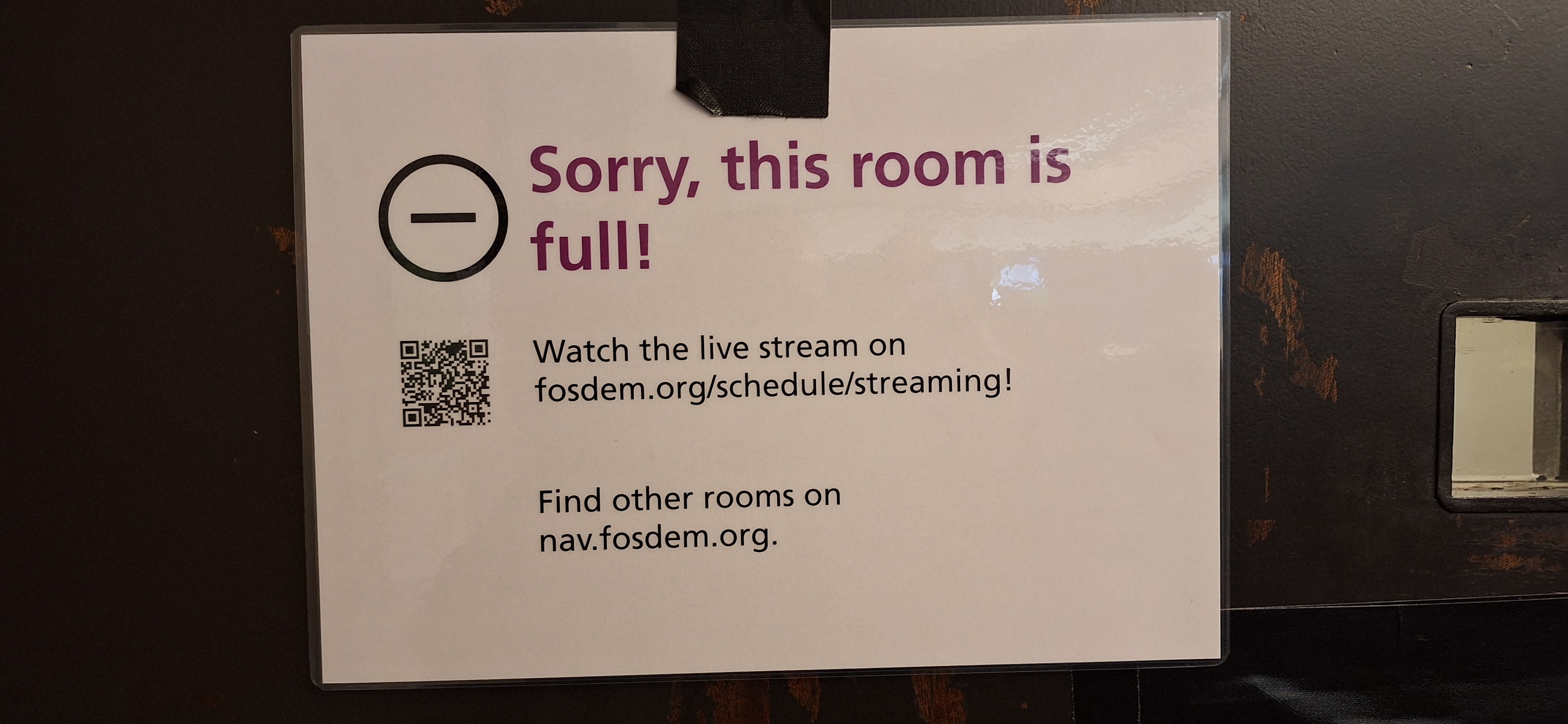CentOS Connect and FOSDEM 2025
This year, I was back in Brussels. I visited two conferences: CentOS Connect and FOSDEM. As usual, both events were fantastic, with great talks and nice people. And as usual, they were also exhausting and not just for introverts like me. I stayed to Belgium to recover, but that’s another story… :-)
CentOS Connect
Some people still ask me why I visit Red Hat events, especially because I am a proud openSUSE desktop user, while FreeBSD feels the closest to me when it comes to software design and philosophy – not to mention that it is the OS that I have been using the longest (since 1994). The answer is easy: over 70% of syslog-ng users run syslog-ng on RHEL, CentOS or a compatible operating system. This means that regardless of my OS preferences, I have the strongest connections with the Fedora / RHEL / CentOS & Co. communities. And over the past 15 years, many of these professional relationships evolved into friendships.
As expected, the main topic of CentOS Connect was CentOS Stream 10, EPEL 10 and of course, the upcoming RHEL 10 release. To me, the event’s main message was that version 10 is an evolution and not a revolution. In other words, if a piece of software worked on RHEL 9, then there is a very good chance that it will also work on RHEL 10 without any changes. All components were updated to the latest available versions, but there were no groundbreaking changes like the introduction of systemd a decade ago.
Last year, I started experimenting with Alma UBI / RHEL UBI containers for syslog-ng. This year, I plan to keep going and check these containers in a Kubernetes environment. Knowing our users, the obvious choice would be Red Hat OpenShift. Just as testing and developing on CentOS Stream is recommended for those targeting RHEL, OKD is the way to go for those who want to support a new OpenShift version from day one. I plan to start with OKD.
We already test syslog-ng on Fedora Rawhide and CentOS Stream 9 before each commit: https://www.syslog-ng.com/community/b/blog/posts/rolling-rpm-platforms-added-to-the-syslog-ng-package-build-system Creating automatic tests for OKD / OpenShift will be a bit more challenging, but I hope to start testing them at least manually soon.
As an introvert, I easily get people overdose. Luckily, there was a beautiful botanical garden right next to the CentOS Connect venue:

Brussels Botanical Garden
FOSDEM
This year, I presented syslog-ng in the BSD devroom. As I mentioned earlier, I have a special bond with FreeBSD, as I have been using it for the past 31 years. A few months ago, I was at EuroBSDCon, where I was asked if we could add a syslog-ng source for FreeBSD audit logs. I did it as soon as I got back from the conference: https://www.syslog-ng.com/community/b/blog/posts/freebsd-audit-source-for-syslog-ng I presented this effort at FOSDEM and also added some information on how to make it general, that is how to integrate any application output with syslog-ng. After my talk, I had some great discussions with happy users inspired by my syslog-ng talks and one of our contributors. Expect some news about these in the coming months! :-)

FOSDEM: room is full
Of course, many FOSDEM rooms operated at full capacity and there were quite a few talks which I will watch once their recordings are on-line. I do not want to list individual talks here, just some major takeaways:
-
AArch64 packages are available for everything. There was only one project without it, but even they promised to have it utilized in the next few months. Expect some syslog-ng news on this topic… :-)
-
Risc-V is getting popular among developers, but it’s still far from being usable for average users.
-
Documentation is an integral part of a software release. Without it, a piece of software is useless and not worth releasing. Previously, I only heard this opinion from users and documentation people, so it was good to hear it from developers as well!
-
SBOM (Software Bill of Materials) is becoming a hot topic.
-
Both admins and developers are now expected to know Kubernetes. Of course, there were some people who complained about it, but for most, it was normal. For me, this means that it’s time to gather some practical semi-production experience about Kubernetes, instead of just simply learning about it… :-)
To summarize both events as simply as possible: I hope to see you again next year! And maybe I’ll also go to Configuration Management Camp…